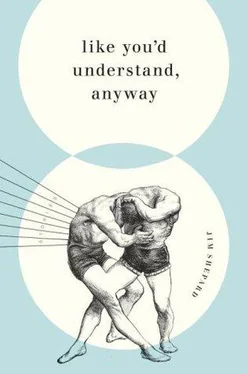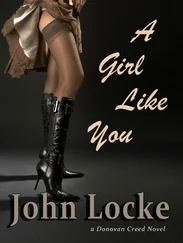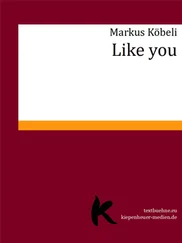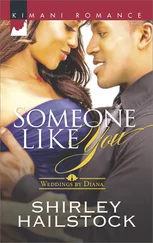During that first party for the cosmonaut finalists, I found Bykovsky and Ponomaryova holding hands as they touched an exposed wire in her portable radio set. “Come on, you try it,” they said.
1 August 1964
What else, that day, did I not do? I still remember. I failed to signal the correct working of the solar orientation system. I remained silent throughout reentry. I did not report retrofire or the separation of the capsule. I was told there was quite the panic down below throughout all of this. I focused instead on the roaring sound of the hot air, the bacon-in-the-pan sound of the thermal cladding in the reentry inferno, and the jouncing which was like a springless cart being galloped down a rutted gully. Then outside the charred porthole I saw white sky and the hatch over my helmet blew away like I'd been shelled and the ejection rockets thundered in a blur of daylight and I saw the burned capsule falling away below as I was separated from my seat.
Against regulations, I opened my visor and looked up, and was struck in the face by a piece of metal. I saw a river and some haystacks. I saw a rail line, with a locomotive. I saw small figures running to where I would land.
At the press conference we faced one hundred and three correspondents. Bykovsky had landed two orbits later. I was asked about the stitches in my face. I told the correspondents that we were proud of what our country had accomplished. I said that I'd felt no fear. Three different correspondents asked if I'd been lonely, and I answered that I'd known my loved ones were even closer than everyone thought, watching me fly. I told them that, descending on my parachute, I'd sung “My Country Hears, My Country Knows.” There were ten questions for me for every one for Bykovsky. At one point I turned to him and joked, “Oh, were you up there, too?” and occasioned a roar of laughter. I learned later that Khrushchev had been delighted with my performance.
This was before the contests with the doctors and the interviews with Korolyov — all devastated disappointment — and the honors, ending with our tour of Bulgaria, Mongolia, Italy, Switzerland, Mexico, Ghana, and Indonesia. Bykovsky asked that his wife be allowed to accompany us, but Kamanin rejected the request. It was before I received the news of my arranged marriage to Niko-layev, considered the cosmonauts' most eligible bachelor; before the first state wedding in Soviet history, presided over by Khrushchev himself; before the birth, just a few months later, of my little Alyona, a girl who provided proof that space travel interfered with neither love nor fertility.
Of course my diary had been found and read immediately upon my return. But before we were separated forever, Seagull and Hawk were allowed their one trip together around the world, chaperoned by the KGB. We had already separated — we had separated in space — but we still had our walks. On one we traversed a rough track overgrown with honeysuckle and mayweed, leaving our pursuers behind. A wolfhound, very meek and companionable, had attached herself to us. It was entirely quiet except for her panting and the calls of the KGB. We lay with our heads thrown back. Bykovsky mentioned Solovyova, who'd asked him to contact me when her letters had returned to her unopened. “Why was that, do you suppose?” he asked, when I refused comment. “Though it's none of my business,” he added. We talked about how we'd learned about sex. According to my high school friend, it took an hour, and if a couple did it for two hours, they had twins. We kissed for the last time. I asked if he would remove my virginity, and after some reassurances, he did.
I remember how much I'd loved the new teacher who'd arrived to teach physics after the war. He was a gangly and sweet man who could float pins on water and make electricity by combing his hair, which had gone prematurely white. He was so happy we were happy. We were happy because we were grasping those simple things that seemed miraculous. We were happy because at such moments we no longer belonged to only ourselves, but were beginning to experience what other people could see and feel. We were reminded that those sorts of feelings were so brief that it was as if their beginnings touched their ends. And even then I was given a glimpse of how I'd always turn my back to what was offered; how I'd never fully grasp, flailing, at whatever charities the world was able to dispense; how what I thought was my reach was really only my attempt to dismiss, to expel, or to disavow.
Summer camp: here's how bad summer camp was. The day I arrived I opened my camp trunk and changed my shirt and just stood there alone and breathing through my mouth in the four-man platform tent, just me and the canvas smell and the daddy longlegs, and then I thought that I was the person who I least wanted to be with, and I stepped out into the cooler air. There was nowhere to unpack anything, and even I wasn't so scared that I could hang around in the tent. It was like 104. Sweat ran down the backs of my knees. The black metal stays on the tent ropes were too hot to touch.
We were in a pine forest. Everything had that baked pine needle smell. My father had just driven away. A squirrel sat up across from me, woozy with the sun. He worked over a nut and then spit it at me. Way off behind him, two kids were sitting on another kid's chest in a clearing. Down the hill to my right, someone was ringing a bell.
I headed down the path toward the noise. I think I was affecting a saunter. I sauntered down to the lean-to where a few kids and some counselors were hanging out. A sign on top said counselors lean-to. The counselors were two blond guys, maybe seventeen or eighteen, the kind of guys who seem like nice boys to moms. A fat kid who'd already taken off his shirt was bugging them about something. The fat kid had my glasses. Which was too bad for the fat kid. They were even fixed with electrical tape on the same side that mine were. There was a whine in his voice that I could hear from up where I was, and he kept at it. You fucking idiot , I thought the whole time I was walking down to them. I was talking about me. I was always wanting myself to die whenever I found myself in a stupid situation. When I got to the front of the lean-to, I nodded at whoever caught my eye. Nobody nodded back.
“I told you I don't know,” one of the blond guys said, watching me fold my arms and stand there. He seemed to be talking to the fat kid. He had both hands on the two-by-four that was the top edge of the lean-to and he was swinging his body a little, keeping his feet in place. He looked dangerously bored. The fat kid said something else. The blond guy ignored him. The fat kid said something after that. The blond guy swung with everything he had and brought his feet up together and caught the fat kid under the chin and up along his face.
The fat kid left the ground a foot and a half and landed on his back. The sound was like when I whacked the sheet on our line with my wiffle bat. We all just stared like now we knew what we were in for, for the next however many weeks. I felt this rush, like I was the blond guy and the fat kid all at once. One of the other kids bent over and found where the glasses had landed.
“How are you?” the guy who'd kicked the fat kid asked me.
“I'm okay,” I told him. I didn't know what else to say.
“C'mon. Talk to me. Tell me. What's wrong?” my mother said when she got me alone the day before I left. I told her I didn't want to go to camp and she said, besides the camp. I told her I guessed I felt bad about my brother and she said, besides your brother.
She was asking because she saw what I was like during the day and after school and she wanted to help. She was worried that it would get even worse now that school was over. She said that everyone was worried that everything was taking too much of a toll.
Читать дальше












